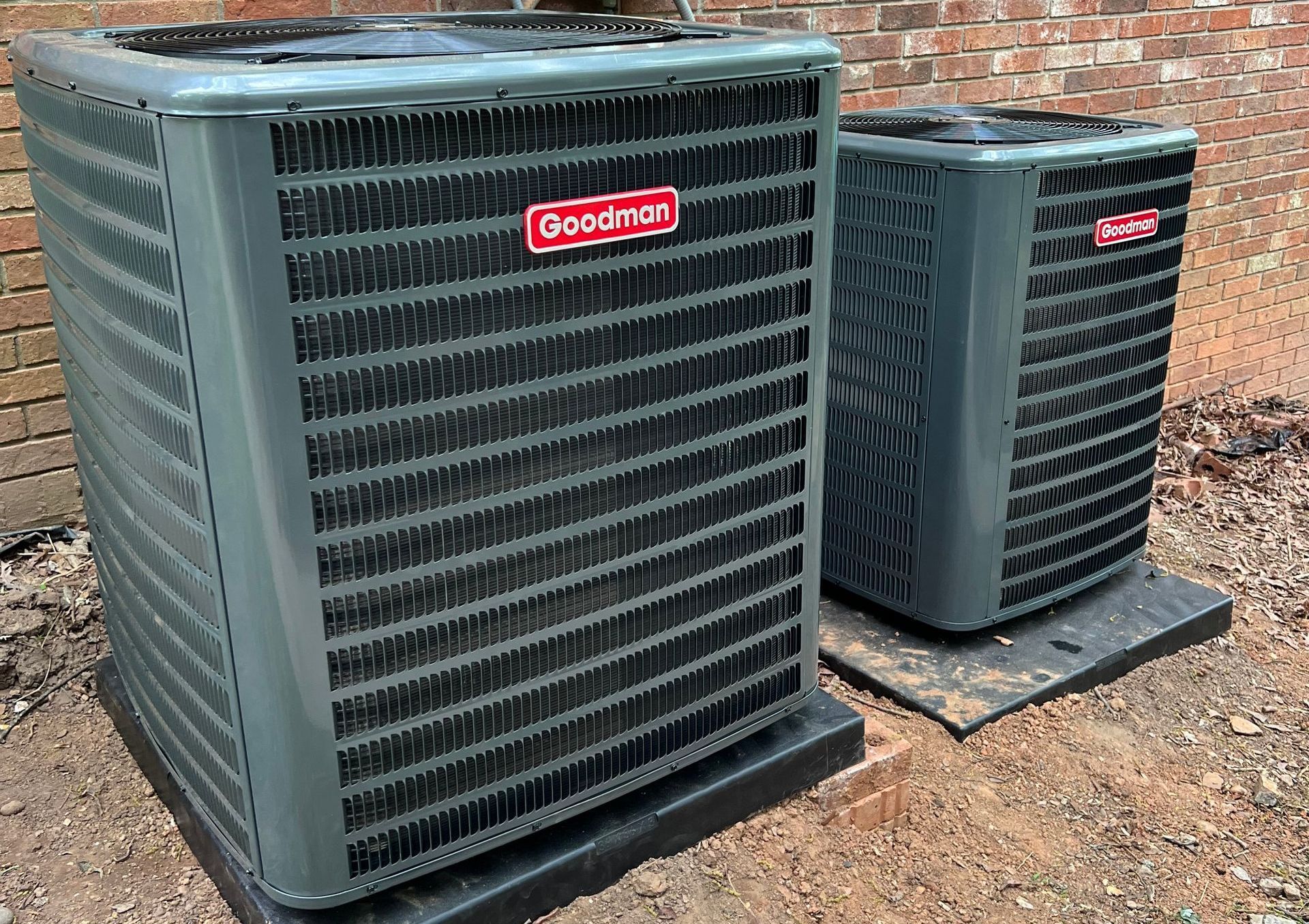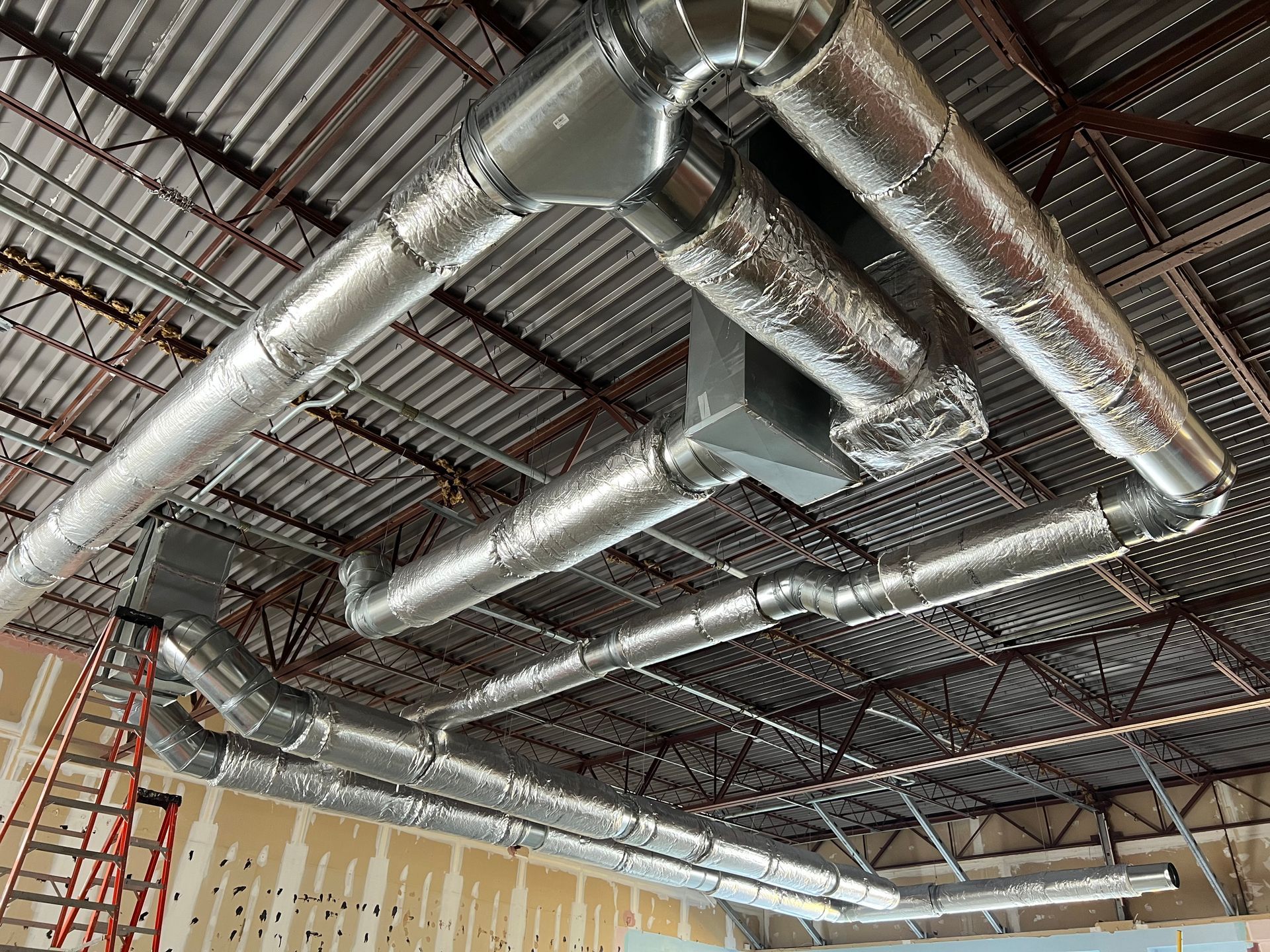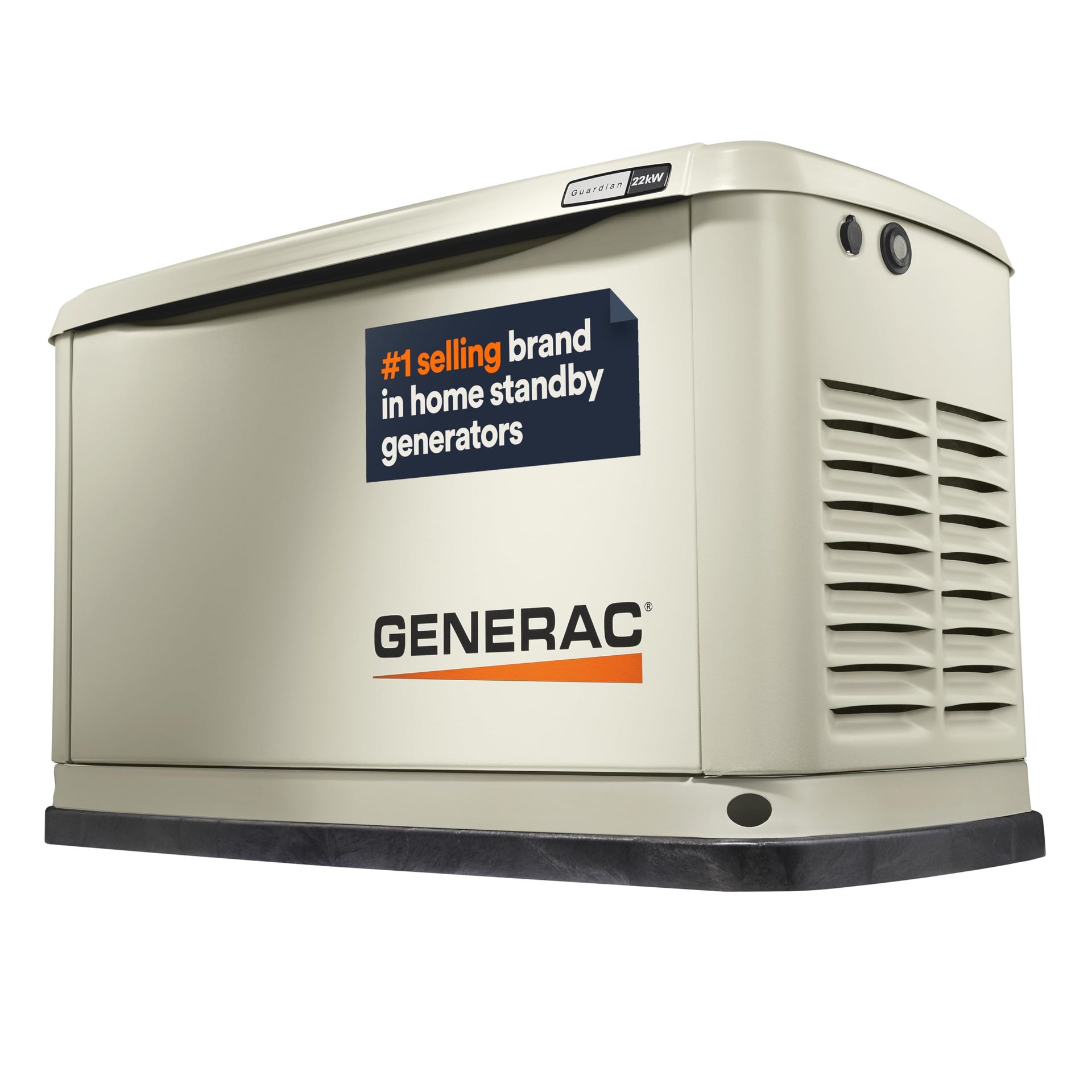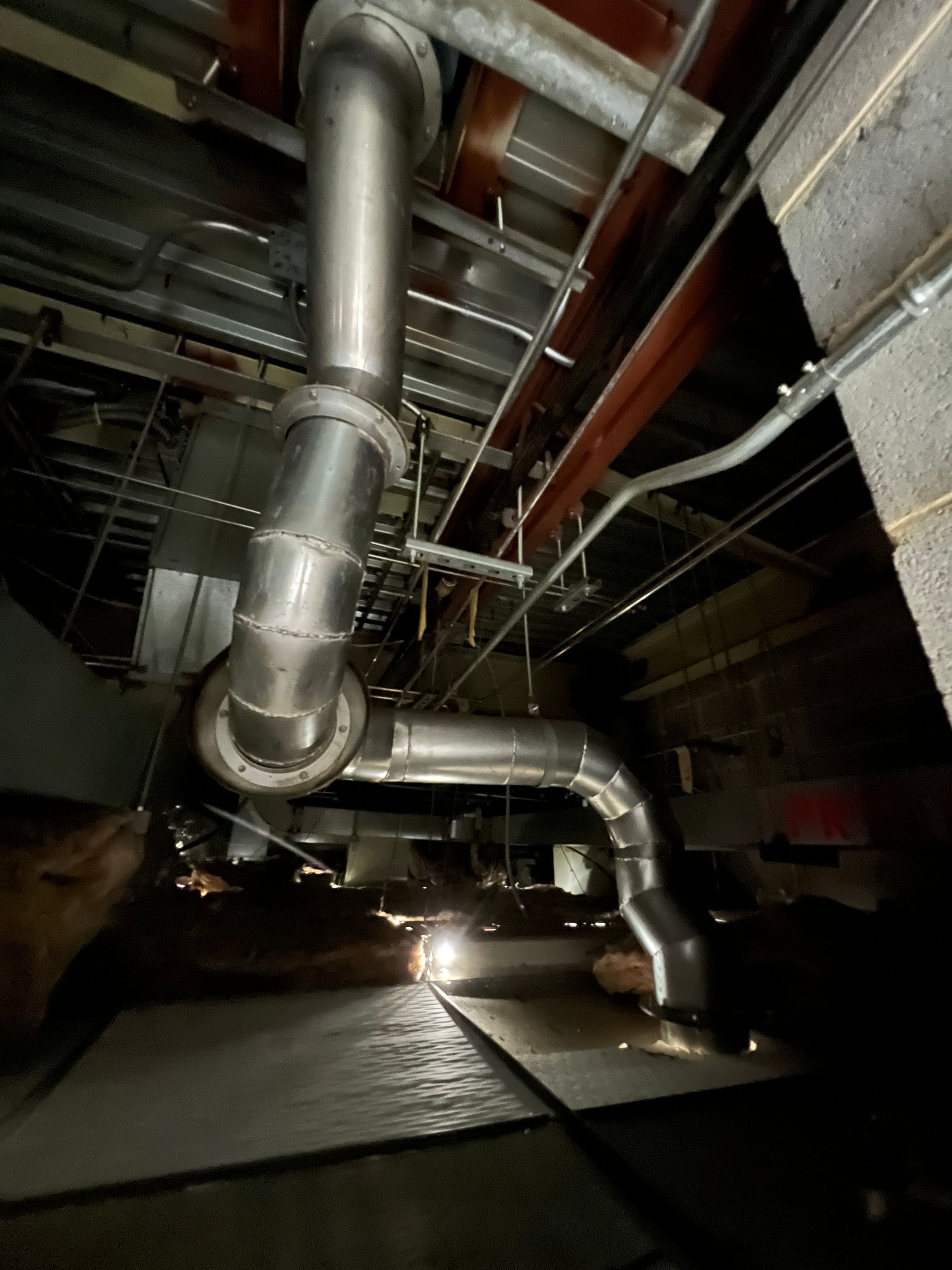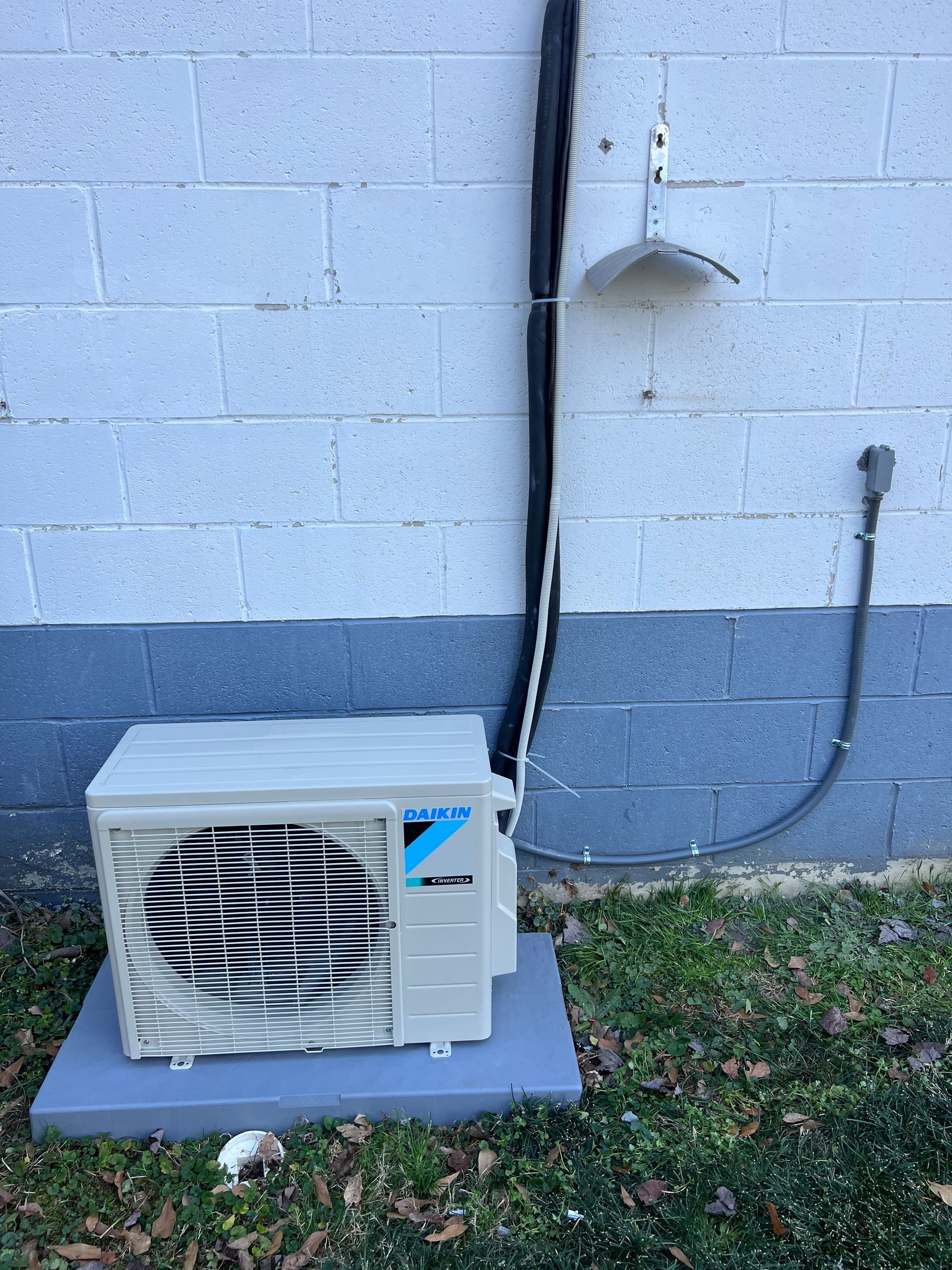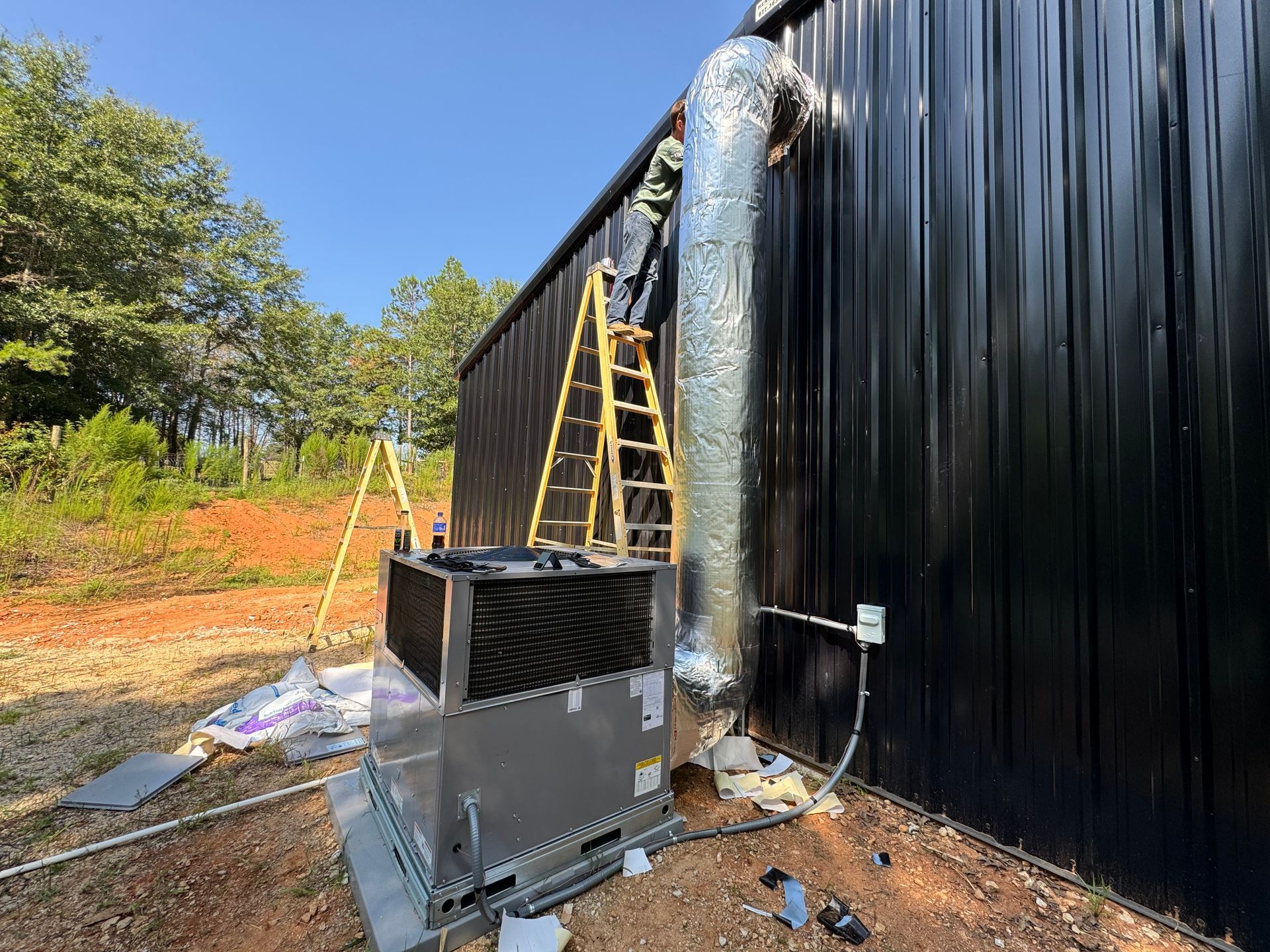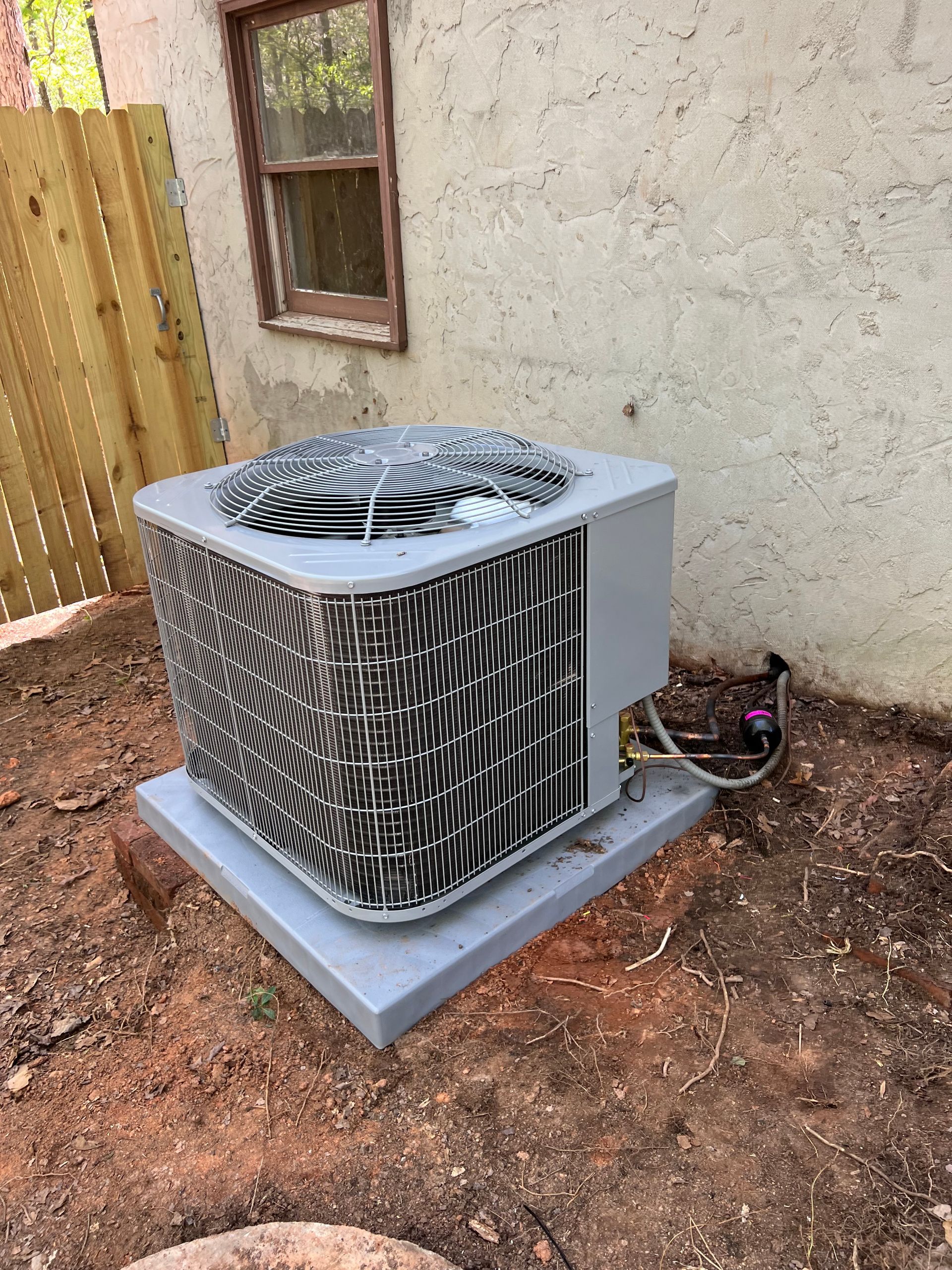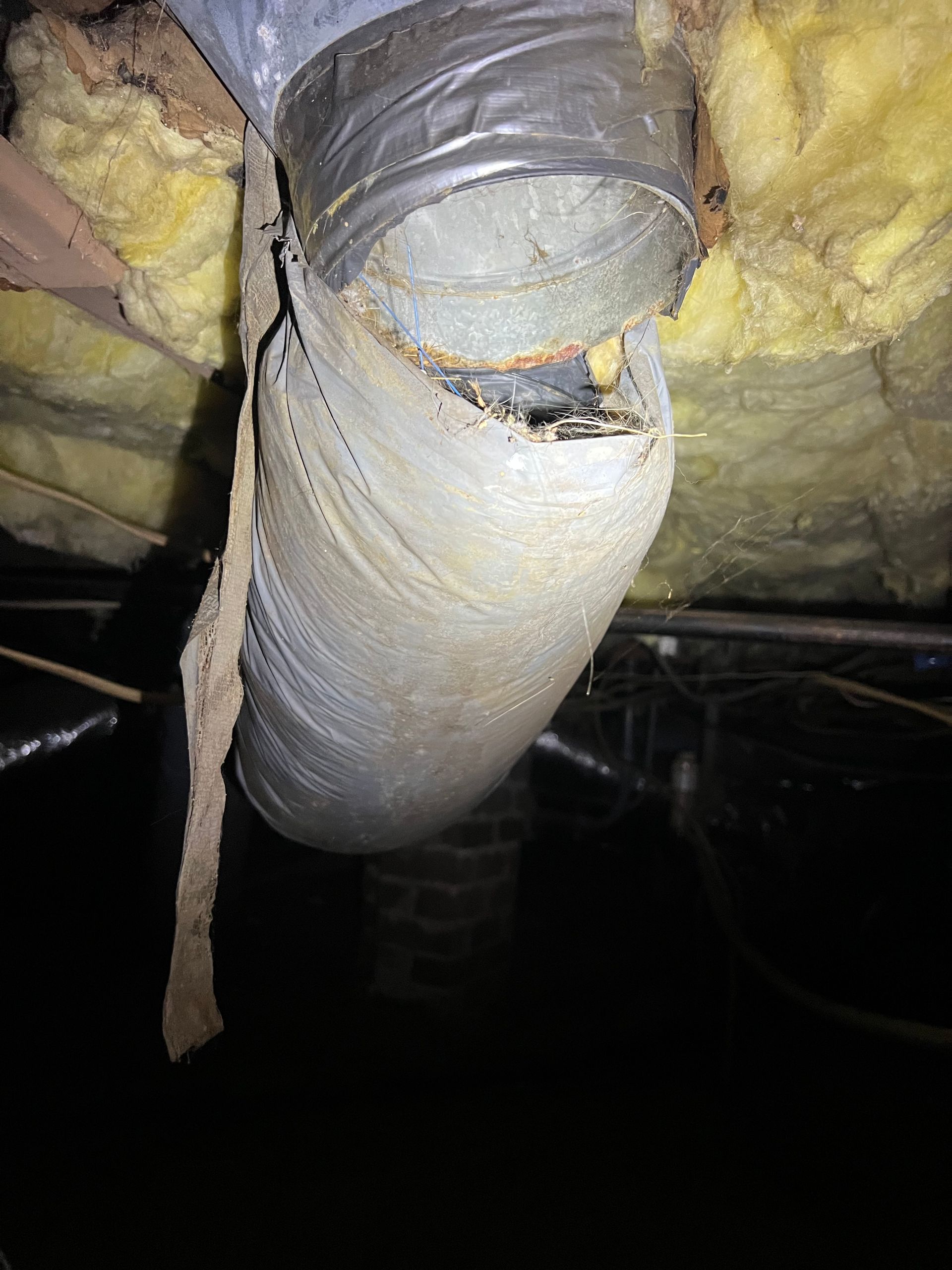How to Avoid HVAC Breakdowns: A Residential Preventative Maintenance Checklist
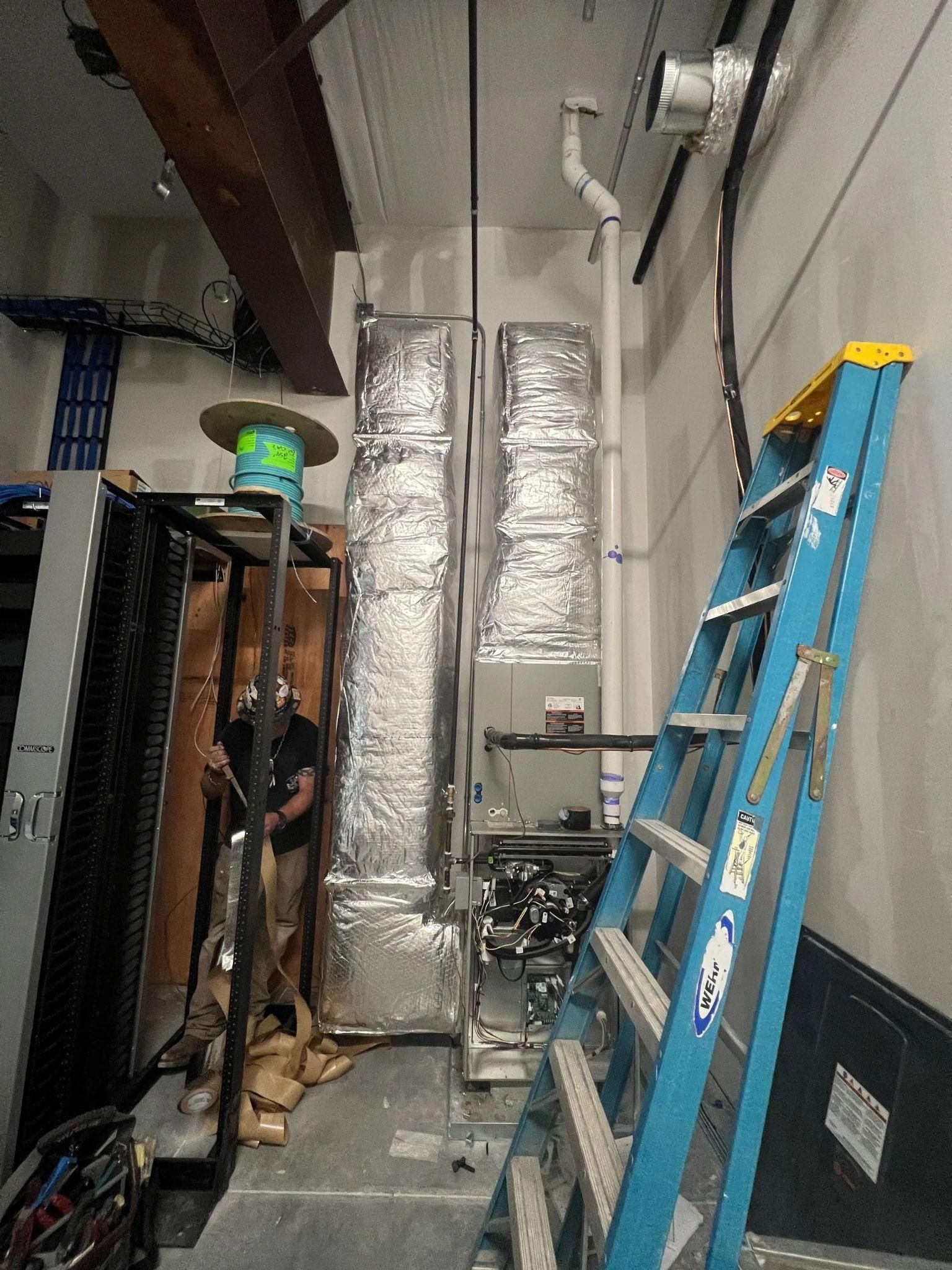
Imagine your HVAC system giving out on the hottest summer day or during a freezing winter night. Not fun, right? Regular maintenance isn’t just a chore—it’s the secret to avoiding these headaches. By taking care of your system with a preventative maintenance checklist, you can save money, avoid downtime, and enjoy a consistently comfortable home.
Let’s explore why HVAC care matters and how you can keep your system in top shape all year round.
Why Preventative HVAC Maintenance Is Worth It
Taking care of your HVAC system might not be the most exciting task, but it’s one of the smartest things you can do for your home. Let’s break down why regular maintenance matters and how it can make your life easier:
Use Less Energy and Save Money
When your HVAC system runs efficiently, it uses less energy. Simple tasks like cleaning air filters and keeping ducts clear can make a big difference. A clogged duct or dirty filter forces your system to work harder, driving up your electricity bill. With regular check-ups, you’ll keep your energy use (and your wallet) in check.
Keep Your Home Comfortable
Imagine your air conditioning giving out on the hottest day of the year or your furnace quitting in the middle of winter. Regular maintenance helps you avoid those frustrating breakdowns. By keeping parts like the thermostat and airflow system in good shape, your home stays cozy no matter the season.
Help Your HVAC System Last Longer
Replacing an HVAC system is a big expense, but regular care can help you avoid that for a long time. Cleaning parts like the evaporator, condenser, and heat exchanger reduces strain on the system, keeping components like the compressor and bearings running smoothly. Less stress on your system means fewer repairs and a longer lifespan.
Improve Your Indoor Air Quality
Dirty HVAC systems can circulate dust, mold, and allergens around your home. That’s bad news for anyone with allergies or breathing issues. By cleaning your system and changing filters regularly, you’ll enjoy fresher, cleaner air—and fewer health concerns for your family.
Avoid Expensive Repairs
Small problems, like a loose pipe or a refrigerant leak, can turn into big, costly repairs if ignored. Preventative maintenance helps catch these issues early. A quick fix now is always cheaper than dealing with an emergency breakdown later.
Plan Your Costs and Avoid Surprises
Many HVAC services offer maintenance plans with scheduled inspections and tune-ups. This keeps your system in good shape while making your expenses more predictable. No surprise costs, no stress—just peace of mind knowing your equipment is covered.
Now that you know why maintenance is so important, let’s talk about what you should be looking for when creating your HVAC checklist.
Annual HVAC Maintenance: What to Include in Your Checklist
1. Inspect and Clean Rooftop AC Units and Vents
Clear any leaves, debris, or obstructions around your rooftop AC unit and vents to keep airflow smooth and energy use efficient. Blocked drainage paths can lead to water damage, so make sure there’s space for snow or ice to melt and drain properly.
Check for rust or corrosion on the unit and vents, as these might signal moisture problems. Secure all panels and covers to protect the internal parts of your system from water and debris.
2. Clear Around Outdoor HVAC Units
Make sure to keep the area around your outdoor HVAC units clean. Remove leaves, dirt, and debris, and keep at least 2-3 feet of space around the unit. This open space helps maintain good airflow, so your system doesn’t have to work harder than it should. A quick cleanup also helps you notice any problems early, like buildup or potential damage.
3. Install High-Efficiency Pleated Air Filters
High-efficiency pleated air filters are a great way to improve your indoor air quality. These filters are designed to catch more dust, pollen, and mold spores, making your home cleaner and healthier—especially helpful if you have allergies or breathing issues. Many of these filters also have an electrostatic charge that attracts tiny particles, trapping them before they can circulate.
4. Check Your Heater and Clear Out the Ducts
Before the cold sets in, switch on each heater or furnace to ensure they’re running smoothly. This quick test helps you catch any issues early, so you’re not left scrambling for repairs when it’s freezing outside. Take a moment to clean the ducts as well. Dust and debris can pile up, slowing airflow and making your system work harder than it should.
5. Arrange a Combustion-Efficiency Test
A combustion-efficiency test helps determine how well your furnace converts fuel into heat. If your system isn’t working efficiently, it could lead to higher fuel costs and even dangerous issues like carbon monoxide leaks. Having a professional HVAC technician handle this test ensures it’s done accurately. They’ll check the system’s performance and make any adjustments or repairs needed.
6. Regularly Inspect Refrigerant Lines
Refrigerant lines are essential for your HVAC system to cool your home effectively. Any leaks in these lines can disrupt the cooling process, causing your system to work harder, increasing your energy bills, and leaving your home less comfortable.
Beyond efficiency, refrigerant leaks can be harmful to the environment and potentially unsafe. To avoid these issues, include checking refrigerant lines in your regular maintenance schedule. Spotting leaks early ensures your system stays efficient, safe, and ready to handle the heat.
7. Inspect Heat Exchangers for Any Leaks
Take time to examine your heat exchangers for leaks. These components play a key role in transferring heat effectively. A leak can cause serious issues, such as the release of harmful gases that lower indoor air quality and could pose safety risks.
If you see water leaking from your boiler, it’s a clear signal that your system needs immediate attention. Contact a trusted technician to check and repair the problem before it worsens.
8. Replace Humidifier Filters for Cleaner Air
Humidifier filters might not always be top of mind, but they play a crucial role in maintaining healthy air in your home. These filters work hard to trap dust, minerals, and other impurities, ensuring the moisture added to your air is fresh and clean. Over time, they can get clogged, reducing their efficiency and affecting your home’s air quality.
Take care of this task before winter hits. Changing the filters now means you won’t have to deal with it when it’s cold, and your system will be ready to keep your air comfortable and clean.
9. Adjust Humidistats to Control Moisture
Fine-tuning your humidistats is an easy way to manage the moisture in your home. This simple step can help stop mold from growing, keep wooden furniture and floors in good condition, and create a cozy atmosphere. If someone in your home struggles with respiratory issues, balanced humidity can also make breathing easier.
Proper humidity settings can even reduce your energy costs. When the air feels warmer, you’ll rely less on your heating system, saving money on your bills. Be sure to set the humidistats based on your local climate to get the best results for your home.
10. Resolve Insulation Problems Before It Gets Colder
Taking care of insulation issues now is a smart move. Good insulation helps trap heat during chilly months and keeps your home cool during the summer. This not only reduces your energy bills but also prevents your HVAC system from working harder than necessary, which can save you money on repairs and extend its life.
Fixing insulation also makes your home much more comfortable by preventing drafts and keeping temperatures consistent. Instead of waiting for cold weather to make the problem worse, handle it now so you can enjoy a warm, energy-efficient home when winter arrives.
11. Upgrade to Modern Insulation Materials
Choosing to upgrade your insulation is an easy way to improve your home’s energy efficiency and overall comfort. Today’s insulation materials are much more effective than older options, helping to keep your home warm in winter and cool in summer without putting extra strain on your HVAC system.
If you’re planning insulation work, consider making the switch to modern materials. These are not only more efficient but also long-lasting and environmentally friendly. They can even reduce moisture buildup, which helps prevent mold and improves air quality.
12. Install Radiator Reflectors to Keep Heat Inside
Radiator reflectors are an easy addition that helps improve your home’s heating efficiency. By placing these heat-resistant panels behind your radiators, they reflect warmth back into the room instead of letting it escape through the walls.
This small, cost-effective upgrade makes a big difference in keeping your home comfortable. It helps your heating system work more effectively, saving energy and lowering your bills while ensuring your home stays warm during the colder months.
13. Check and Insulate Your Pipes
Cold weather can be tough on exposed pipes, leading to freezing, bursting, and costly water damage. Wrapping your pipes in insulation is an easy way to protect them from freezing temperatures and keep your system running smoothly. Insulating your pipes also reduces heat loss, helping your HVAC system work more efficiently. This can lower your energy bills while keeping your home warm.
14. Thoroughly Clean Your Air Conditioner and Air Ducts
Dust and debris naturally gather in your air conditioner and air ducts over time. This buildup can block airflow, making your HVAC system work harder than it should, which increases energy costs and risks damaging key components. Cleaning your air ducts also improves indoor air quality by removing allergens and pollutants, helping everyone in your home breathe easier. To keep your system in top shape, pour a mixture of bleach and water (half and half) into the condensate drain of your air conditioner.
15. Get Your Chimneys Cleaned Every Year
If your home has a chimney, fireplace, or vent, make sure to clean it annually. Soot and creosote can build up over time, and these materials are highly flammable, increasing the chance of chimney fires. Regular cleaning reduces this risk and keeps your home safer. An annual cleaning also helps you catch structural issues early, saving you from costly repairs later.
16. Check and Test All Alarms
As the weather gets colder, heating systems work harder, increasing the risk of fire or carbon monoxide leaks. Make sure your smoke and carbon monoxide alarms are ready to keep you safe. Replace the batteries in all alarms and test them to ensure they’re working properly. Don’t wait for the alarms to beep—stay ahead of any issues.
Seasonal HVAC Maintenance Tips
Spring and Summer Preparations
Before the heat arrives, test your air conditioner to ensure it’s cooling effectively. Check and clean the evaporator and condenser coils to improve efficiency and prevent potential issues. Adding these simple steps to your seasonal HVAC maintenance helps keep your system running smoothly during the summer.
Fall and Winter Preparations
Prepare for colder weather by inspecting your heating system for efficiency and checking heat exchangers for leaks. Clean chimneys and flues to avoid fire hazards from soot buildup. These steps in your winter HVAC maintenance routine ensure a safe and warm home all season long.
Tasks Homeowners Can Handle
Change Air Filters Monthly
Changing your air filters once a month is a simple way to keep your HVAC system running smoothly. Clean filters improve airflow, reduce energy use, and prevent extra wear on your equipment. This small task is an important part of any HVAC preventative maintenance checklist and helps you avoid expensive repairs while staying within your budget.
Keep Outdoor Units Free of Debris
Leaves, dirt, and other debris can clog your outdoor HVAC unit, making it harder for your system to function. Regularly clearing the area around the unit ensures proper airflow and prevents unnecessary strain on the equipment. This quick step reduces downtime and keeps your residential HVAC services efficient.
Test Alarms and Replace Batteries
Check the batteries in your smoke and carbon monoxide detectors regularly to make sure they work when you need them. These alarms are a key part of safety, especially during heavy HVAC use in winter.
When to Call Professional HVAC Services
Schedule a Professional System Inspection
A thorough system inspection is a must on your HVAC preventative maintenance checklist. Skilled HVAC contractors can spot hidden problems like small leaks or worn-out parts that might cause bigger issues later. Regular inspections ensure your equipment runs efficiently, reduces downtime, and helps you avoid costly repairs while keeping everything on budget.
Call the Experts for Advanced Cleaning and Repairs
Some HVAC maintenance tasks are best left to professionals. Services like cleaning air ducts, checking refrigerant levels, or repairing coils require specialized tools and knowledge. Hiring experienced HVAC contractors for these jobs keeps your system running at peak performance, prevents expensive damage, and ensures a smooth user experience.
Upgrade Your System with Professional Installation
If you’re ready to install smart thermostats or high-efficiency filters, it’s worth calling a pro. Proper installation is key to getting the most from your investment. These upgrades improve energy efficiency, enhance the performance of your HVAC equipment, and fit seamlessly into your preventative maintenance plan. Let the experts handle it for reliable results.
Common Signs Your HVAC Needs Attentio
Strange Noises or Odors
Odd sounds like clanging or buzzing often indicate mechanical issues, while burning odors can suggest overheating parts, and musty smells may mean mold growth. These are valid warning signs that require attention.
Weak Airflow or Uneven Heating and Cooling
Weak airflow and inconsistent temperatures often point to clogged air ducts, low refrigerant, or other efficiency problems. Tackling them early can improve comfort and system efficiency.
System Turning On and Off Too Often
Short cycling can be caused by issues like thermostat problems, low refrigerant, or an incorrectly sized system. It does stress the system and increases energy use, as mentioned.
Unusually High Energy Bills
A sudden increase in energy bills without a clear reason can often be traced back to an HVAC system working harder than necessary due to issues like dirty filters or leaks. An inspection is the right step to address this.
Difficulty Maintaining Set Temperatures
A malfunctioning thermostat, failing compressor, or aging system can make it hard to maintain consistent temperatures. These are common problems for HVAC systems that need servicing.
Poor Air Quality in Your Home
Excess dust, lingering odors, and allergy symptoms indoors can indicate that filters, ducts, or ventilation need attention. This is an accurate observation.
Water Leaks Around the Unit
Water leaks from clogged condensate drains or refrigerant issues can cause damage. This explanation is accurate and matches common HVAC problems.
Constant Running Without Shutting Off
A system running non-stop often compensates for underlying problems like dirty evaporator coils, refrigerant issues, or poor insulation. This is well-explained.
Unresponsive Thermostat
Thermostat issues, whether calibration or electrical, can prevent the system from working correctly. Upgrading to a programmable or smart thermostat is a good suggestion for improving efficiency.
Ready to Protect Your HVAC System?
Regular HVAC maintenance ensures your home stays comfortable, safe, and energy-efficient. It helps you save on repairs, avoid breakdowns, and keep your system running longer. Starting a maintenance plan or scheduling a professional inspection is a smart way to protect your home.
For expert HVAC services in Anderson, SC, and the Upstate, trust Arrow Renovations and Refrigeration. From installations to repairs and routine maintenance, we’ve got you covered. Call us at 864-556-6423 or visit our website for a free quote today!
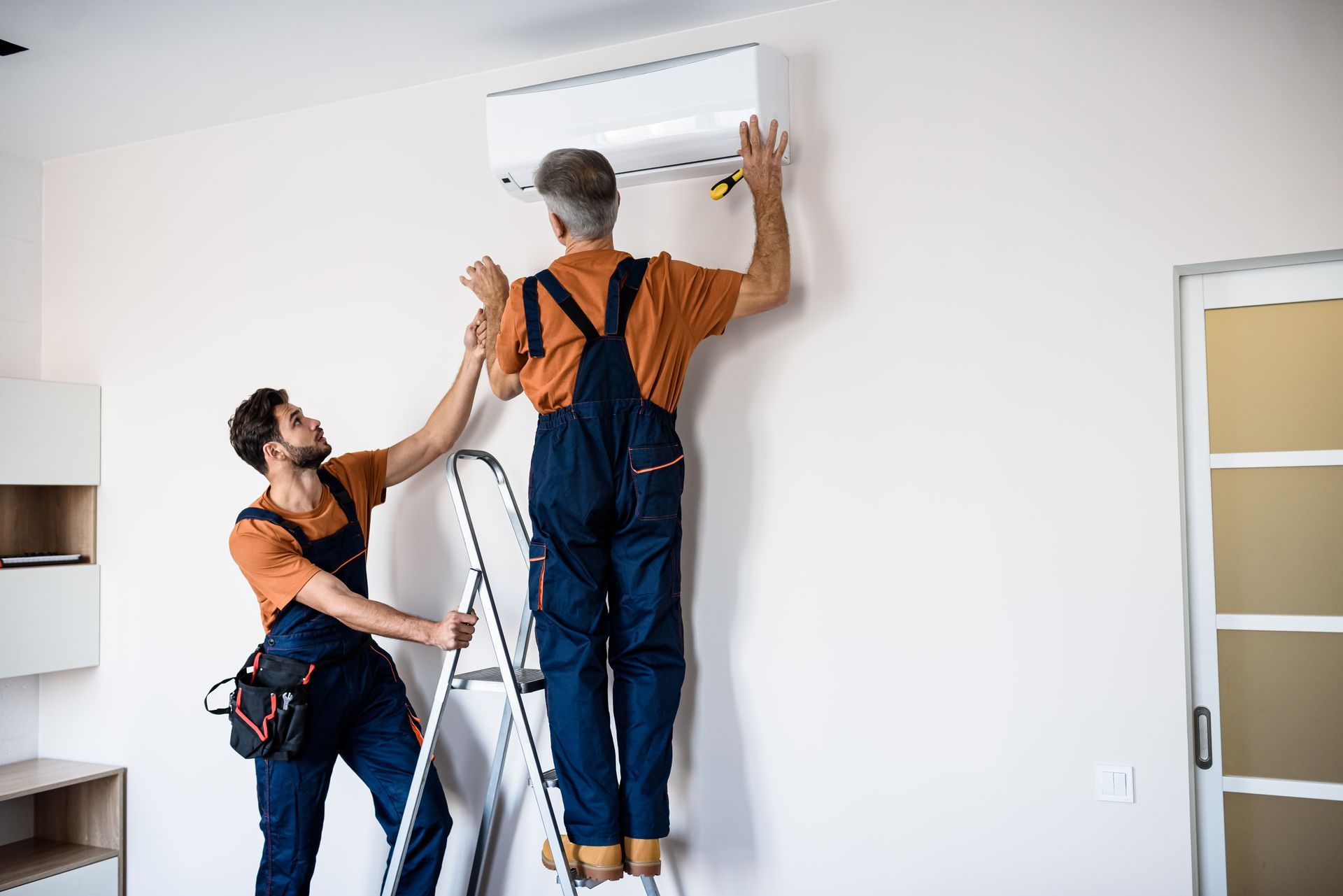
Service Areas
- Greer, SC
- Greenville, SC
- Anderson, SC
- Piedmont, SC
- Seneca, SC
- Iva, SC
- Belton, SC
- Greenwood, SC
- Abbeville, SC
Arrow Renovations & Refrigeration | Designed and Built by Quantum Hawk

